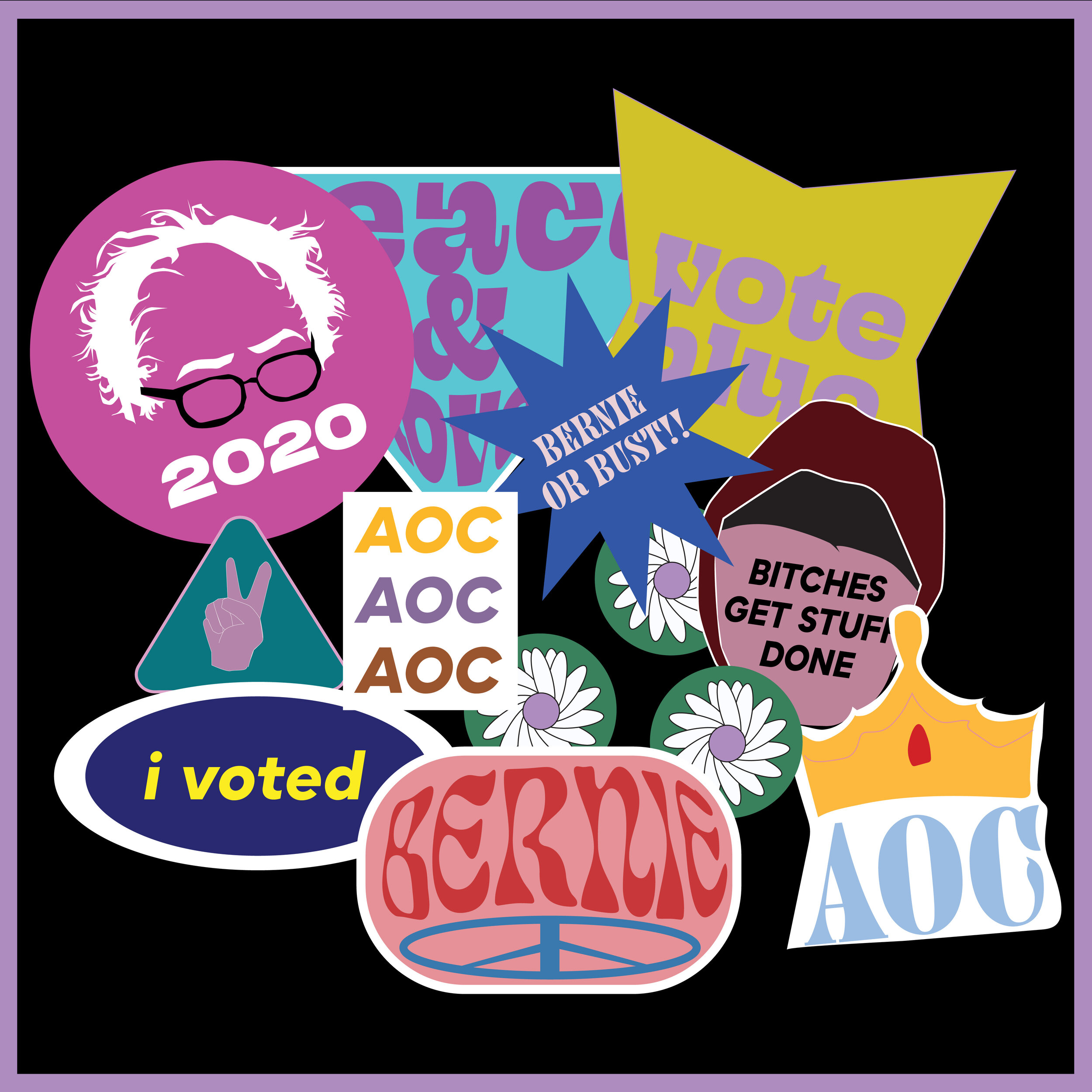Electing Your Idols
Graphic by Mikayla LoBasso
Between the Bernie Bros and the Hot Girls for Bernie, the ladies with a crush on AOC, the existence of a Kamala Harris #KHIVE, and Ruth Bader Ginsberg’s cult following, it’s safe to say that “progressives” in the 21st century capture the hearts of young voters in ways we’ve never seen before. The questions are: what does it mean to be a “progressive politician” –– such a statement being an oxymoron in a sense –– and what does it mean to vehemently support such a figure?
In their essence, politicians are meant to be representative of the people in their respective communities. For popular figures like the aforementioned, however, they’ve come to lead and represent entire generations and ideologies.
Alexandria Ocasio-Cortez is technically New York’s 14th congressional district representative. In Gen-Z culture, she’s the face of “leftist,” young, Latina, working class women in politics. Sounds of her speeches have gone viral on Tiktok, flooded with videos of young women in red lipstick addressing the patriarchy, and she’s amassed millions of social media followers. She’s Vanity Fair’s December cover girl. Senator Bernie Sanders and his stans also demonstrate the left-leaning youth, and the inclusivity of the Hot Girls For Bernie shtick highlighted just how diverse his supporters are. Even after the fall of two presidential campaigns, he holds a loyal following because of his lifelong activism, authenticity, and progressive policies.
Senator Kamala Harris and Justice Ruth Bader Ginsberg, however, have been much more susceptible to criticism due to their political histories. They’re champions of women’s history in their own rights, with Harris being the first Black person and first woman to be elected Attorney General of San Francisco, and RBG’s role in defending reproductive rights, but they aren’t exempt from young people pulling up their pasts and questioning their stances on the injustices themselves and their peers are facing today. It takes a lot of surface level thinking to look past things like Senator Harris’ controversial record on trans rights, and RBG’s vote that allowed a pipeline to be built under the Appalachian Trail.
The difference between a politician like AOC and a politician like Kamala Harris, is the fact that we know who AOC is. We know who she was before she came into office, and we know who she is now. We know who she’ll stand for no matter what; we know that she won’t dilute her policies and ideas to assimilate to conservative incumbent democrats, because she knows and cares about what her community wants and needs. We have seen photos of Bernie Sanders getting arrested for protesting against racial injustice during the Civil Rights Movement and he’s never hid his mission to pursue a Medicare For All plan or a Green New Deal.
Navigating the idolization of politicians is a tricky thing. Even putting supposedly squeaky clean representatives like Bernie and AOC on a pedestal is dangerous. While their intentions may be innocent and progressive, they are working within a system that has proven it doesn’t work for everyone. Politics isn’t perfect. Politicians won’t be, either, but we can see that some are trying to make waves from the inside out.
Ideally, politicians would all be regular, intelligent bartenders with empathy and wonderful communication skills. They’d be lifelong selfless activists who’d rather make sure their communities are fed and safe than ever see a dime for the opposite scenario. Or maybe politicians wouldn't exist. The reality, however, is that they do. As much as we wish a mere act of voting didn’t have such an immense impact on our communities and rights, it does. By showcasing who we ardently support, we showcase the issues that are most important to us, and in some cases, which ones we can overlook. If we want to see more Bernie’s and AOC’s in office, we have to invest in our local organizers and activists. Politicians can’t help us as much as we can help each other.

